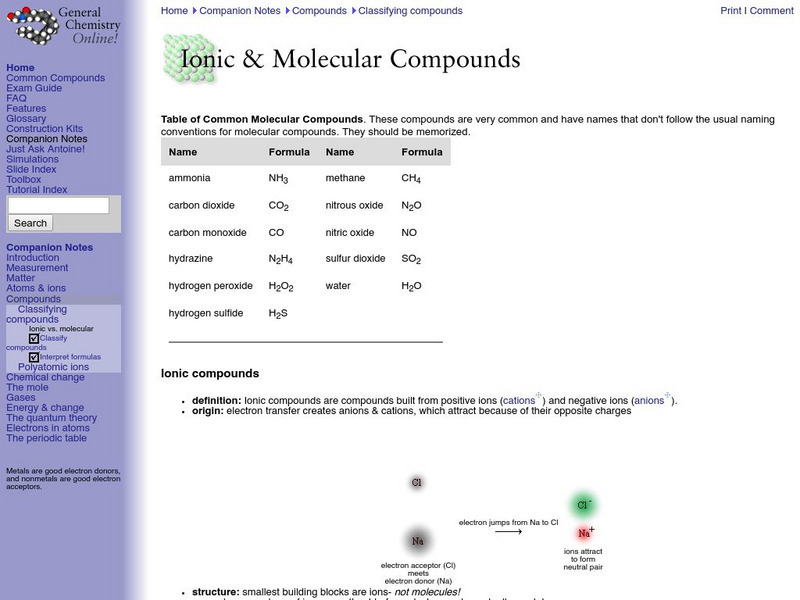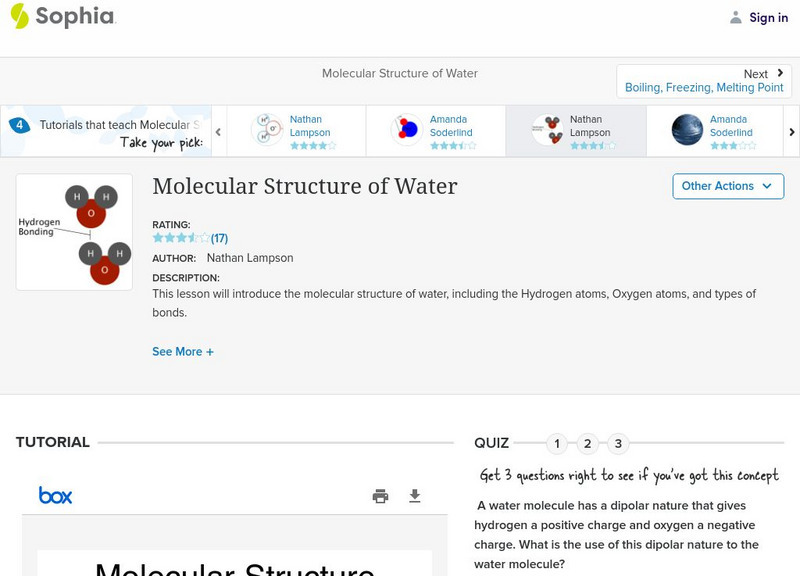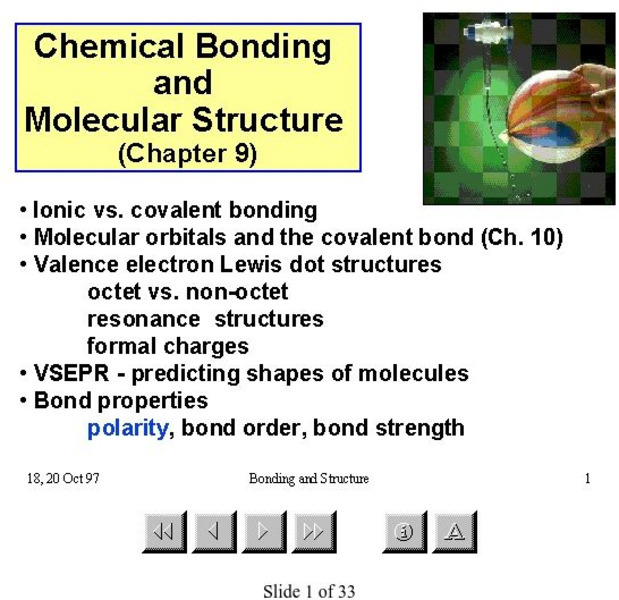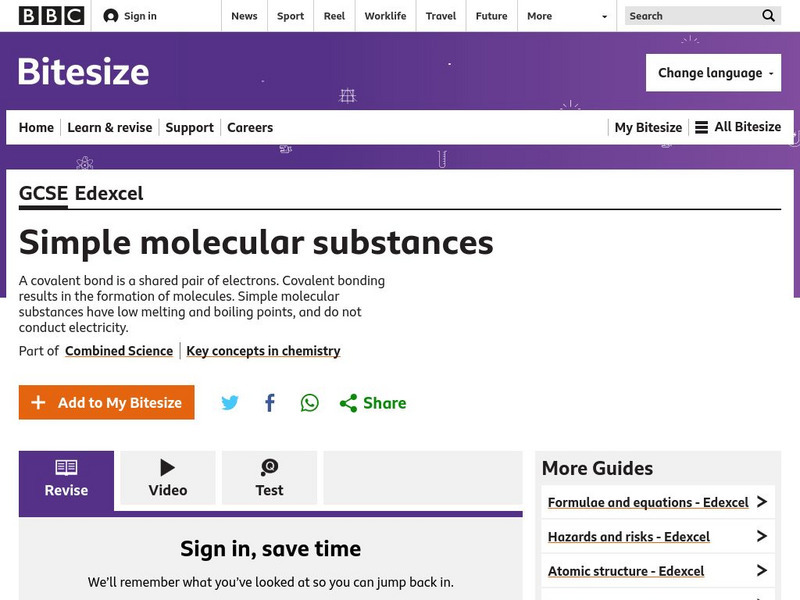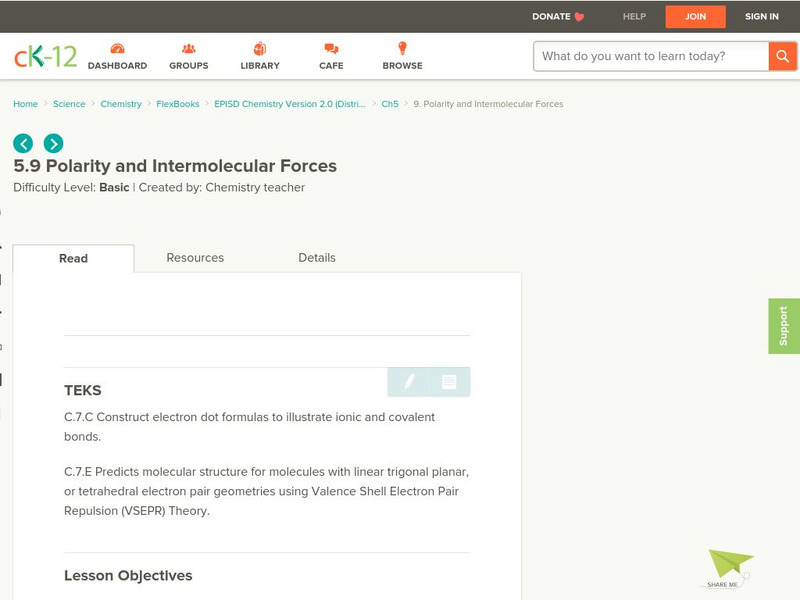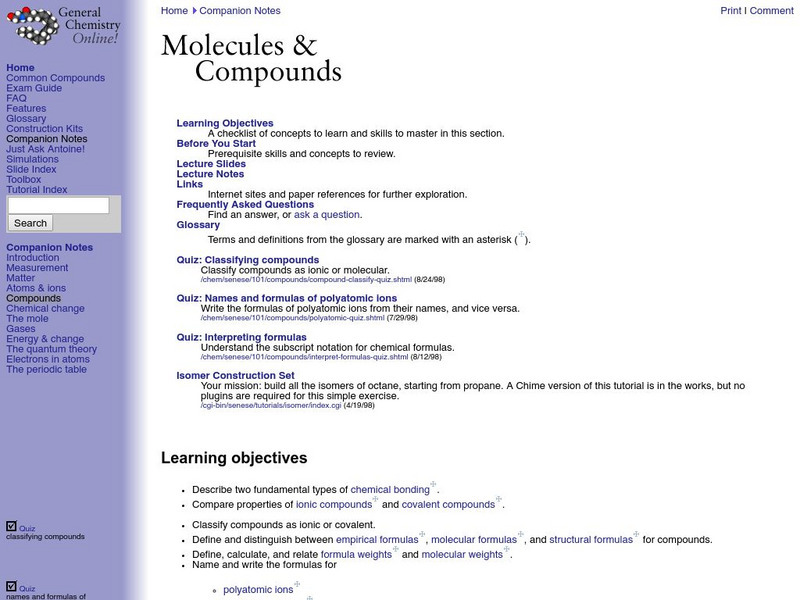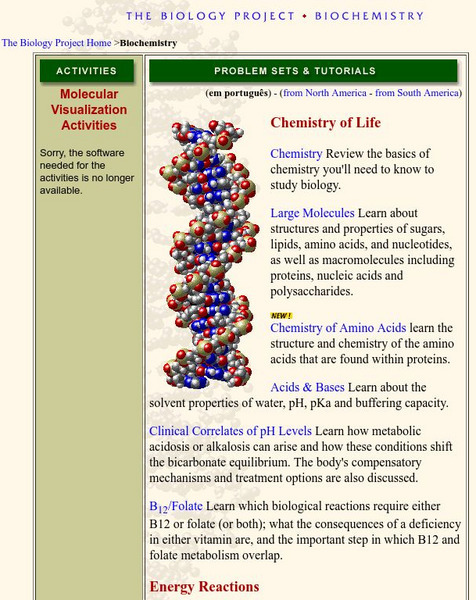Frostburg State University
General Chemistry Online: Ionic and Molecular Compounds
Provides a good outline of the concepts involved in ionic and covalent bonding, with links to definition of terms. Features a list of common molecular compounds and a chart that compares ionic and molecular compounds.
Chiral Publishing
Chiral Publishing: An Introduction to Chemistry: Molecular Structure: Audio Book
This audio book, narrated by Mark Bishop, describes the formation of covalent bonds. Lewis dot structures help highlight the valence electrons used to determine which bonds form. Also find links to animations and tutorials about other...
Sophia Learning
Sophia: Molecular Structure of Water
A brief introduction to the molecular structure of a water molecule, and the chemical bonding which gives it its unique properties.
Sophia Learning
Sophia: Molecular Structure of Water: Lesson 2
This lesson will introduce the molecular structure of water, including the Hydrogen atoms, Oxygen atoms, and types of bonds. It is 2 of 4 in the series titled "Molecular Structure of Water."
Sophia Learning
Sophia: Molecular Structure of Water: Lesson 3
This lesson will introduce the molecular structure of water, including the Hydrogen atoms, Oxygen atoms, and types of bonds. It is 3 of 4 in the series titled "Molecular Structure of Water."
McMaster University
Mc Master University: Molecular Structure
This PowerPoint presentation features 33 slides that explain chemical bonding and molecular shape.
Concord Consortium
Concord Consortium: Molecular Workbench: Strength of Intermetallic Bonds
View two different substances made from the same two elements. Observe the different strengths of bonds between the two different substances.
Concord Consortium
Concord Consortium: Molecular Workbench: Self Assembling Lattice Structure
View this simulation to see how lattice structures are formed when particles of different shapes and charges form bonds.
BBC
Bbc: Gcse Bitesize: Covalent Bonds
A covalent bond is formed between non metal atoms, which combine together by sharing electrons. Covalent compounds have no free electrons and no ions so they don't conduct electricity.
Chiral Publishing
Chiral Publishing: An Introduction to Chemistry: Molecular Structure: Power Point [Pdf]
This power point covers the molecular structure chapter from "An Introduction to Chemistry". It reviews the main ideas and shows many examples of covalent bonding from valence electrons. Also includes detailed steps to drawing lewis dot...
CK-12 Foundation
Ck 12: Polarity and Intermolecular Forces
[Free Registration/Login may be required to access all resource tools.] The following online tutorial describes how the electronegativity difference between two atoms in a covalent bond results in the formation of a nonpolar covalent,...
CK-12 Foundation
Ck 12: Lewis Electron Dot Structures
[Free Registration/Login may be required to access all resource tools.] The following online tutorial describes how a covalent bond forms, including the energy change involved in the process.Students will be asked to use the octet rule...
Frostburg State University
General Chemistry Online: Molecules and Compounds
A complete lesson on compounds, from introductory material in the beginning to a practice exam at the end. This lesson covers bonding, ionic compounds, molecular compounds, naming compounds, structural formulas, polyatomic ions, and much...
CK-12 Foundation
Ck 12: Molecular Compounds
[Free Registration/Login may be required to access all resource tools.] Students investigate compounds, and learn the ways in which molecules are named.
University of Arizona
University of Arizona: Biochemistry
Problem sets, tutorials, and activities related to biochemistry.
Royal Society of Chemistry
Kitchen Chemistry: The Structure of Ice and Water [Pdf]
A set of questions about the molecular structure of water and of ice.
Frostburg State University
Frostburg State Chemistry Online: Classifying Compounds Quiz
A short 6-question online quiz to test your knowledge of compounds. Explains the correct answers after the students answers have been submitted.
Museum of Science
The Atom's Family: Mighty Molecules
In this activity, students construct models of molecules using marshmallows and gum drops.


